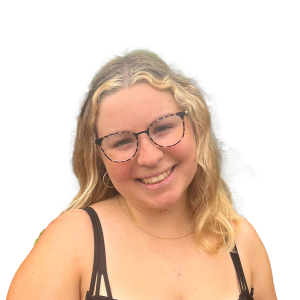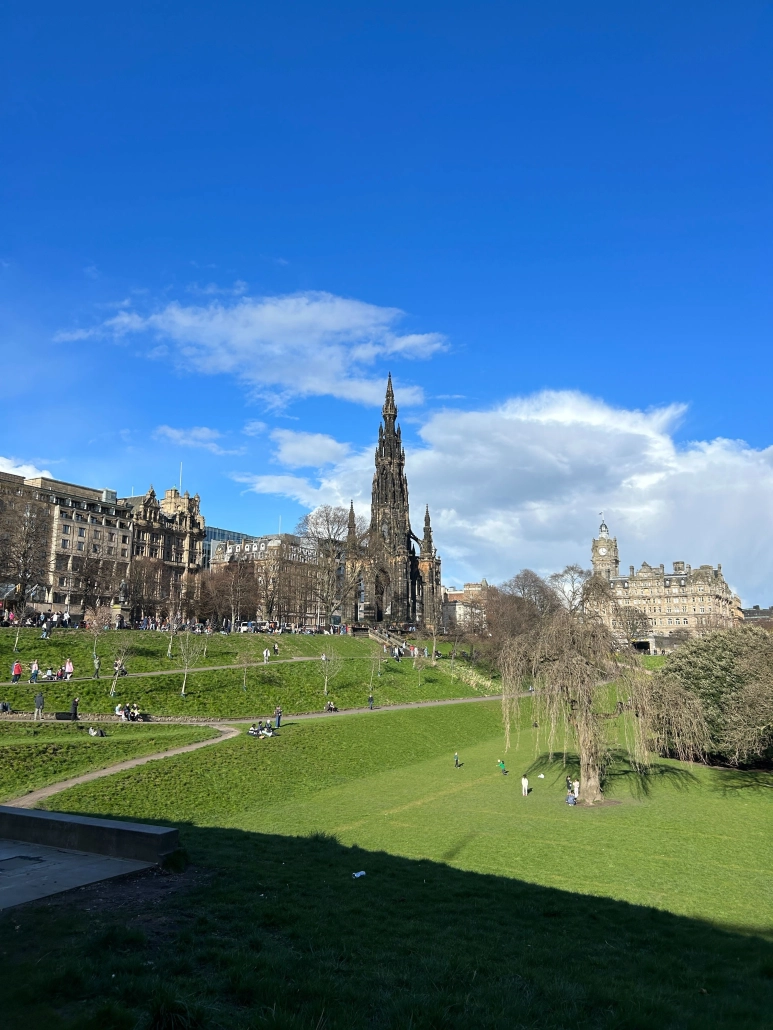NOTES FROM ABROAD
Studying abroad will change the course of your life
Taking the chance to cross the pond was the best decision I’ve ever made.
Taking the chance to cross the pond was the best decision I’ve ever made.


Well, it seems as if my time abroad has finally started to run out, and so has my time with this column. Classes at The University of Edinburgh ended last week, and now we have a month off to study before exams. The daffodils are blooming all around the city and sometimes the sun manages to peek through the clouds. Edinburgh is slowly inching its way toward summer, and for me, that means a return to the United States.
I’ve written a lot this past year on all there is to do while you’re abroad. As my own experience draws to a close, I hope this article can help you begin your own journey toward taking advantage of all that is out there in the big, wide world. The first step toward studying abroad comes in the form of picking a place.
USC offers study-abroad programs for nearly every major, from Roski School of Art and Design’s direct partnership with the University of the Arts London to Marshall School of Business’ wide variety of business school programs to Dornsife College of Letters, Arts and Sciences’ offering of over 60 programs in over 25 countries. Check the information pages for your school and see which countries interest you. There’s bound to be a destination for everyone.
I was drawn to Edinburgh because it is a direct enrollment program at a partner university, so I would really be living the United Kingdom student experience for a year. Similarly, the city’s location is the perfect jumping-off point for other European adventures. The academics also matched well with my major, and I knew I wanted to try out the U.K. school system before applying to graduate school.
Then, decide if you’d like to do a semester or yearlong experience. I’m an advocate for the yearlong experience because I think it allows you to integrate better. You can spread out travel dates and explore your new city rather than bouncing from country to country every weekend. Furthermore, you can get involved with clubs and form deeper connections. Edinburgh has a wide variety of societies, from the Bad Film Society to the Literature Society.
Once you’ve picked your program and decided on the length, make sure you’ve fulfilled all requirements before applying. Look through the course list from your chosen university and make sure there are classes that interest you and will transfer. Make sure to get letters of recommendation from professors who can talk about your discipline and adaptability.
Going abroad means a whole host of challenges that you don’t encounter in day-to-day life at USC, like speaking in a foreign language or navigating a new currency system. Incorporate your willingness to try new things into your personal statement and show that you’ve researched your destination and know what you’re heading into.
Once you’ve successfully made it through the laborious process of applying, now you’ve got to consider what you’re actually going to do while abroad. My biggest piece of advice to anyone considering studying abroad is this: Be open. Be open to new people, new experiences and new cultures.
Be prepared for a different style of teaching, professors with a new angle on old material and classmates who come from a completely foreign background. Never say no to a concert or a pub invitation, make the first move and ask the person sitting next to you in class for coffee, and go to museums on your own. In order to take advantage of everything that study abroad has to offer, you must be open.
One way to familiarize yourself with a new place is by watching vlogs. I watched many vlogs from study abroad and full-time students at Edinburgh before I left and made notes of which coffee places they frequented, which touristy things they actually liked to do and more.
You can learn a lot about the daily rhythms of a city and a university by watching someone else live it. For those who want to study in Edinburgh, I’d recommend Waterstones on Princes Street as one of the best places to get coffee, with its view of the castle and The Scotch Whisky Experience, which is like the Disneyland of whiskey.
Similarly, download apps and look at the Instagram accounts of businesses in your chosen city. For Europe, the Resident Advisor app is useful for seeing what clubs are like. RA will tell you which DJs are performing where and what kind of music they are playing. This can be helpful for figuring out where you want to go in the first few weeks.
Additionally, by simply typing in your city’s name followed by “thrift” or “concert” on Instagram or TikTok, you can find out about more local places to check out before you even step foot in the new country.
My last piece of advice, for those of you ready to begin the study abroad journey and find things to do, is to talk to people who’ve already done it. I’m sure that anyone who has studied abroad is more than willing to answer a few questions about where to go and what to do.
Once you’ve spent a little while living in a new place, somewhere in between getting groceries and going to class it starts to feel like home. You know the streets like the back of your hand, and you know which spots to avoid and where to frequent.
Your study-abroad city will nudge its way into your heart, carve out a little space there and then never leave — and you will be all the better for it. My own study-abroad experience has changed me in myriad ways. I’m more confident, more sure of what I want to do in the future, more adventurous and more open to meeting new people from all over the world.
I’m grateful to have had the opportunity to document my travels with this column, and hopefully it has inspired some of you to take the plunge yourselves. I’m going to miss all the wonderful people I’ve met and the life I’ve made for myself abroad, but I know that it’s time to move forward. Edinburgh will always be my second home.
Hannah Contreras is a junior writing about her experiences abroad in Europe. Her column, “Notes from Abroad,” runs every other Friday.
We are the only independent newspaper here at USC, run at every level by students. That means we aren’t tied down by any other interests but those of readers like you: the students, faculty, staff and South Central residents that together make up the USC community.
Independence is a double-edged sword: We have a unique lens into the University’s actions and policies, and can hold powerful figures accountable when others cannot. But that also means our budget is severely limited. We’re already spread thin as we compensate the writers, photographers, artists, designers and editors whose incredible work you see in our daily paper; as we work to revamp and expand our digital presence, we now have additional staff making podcasts, videos, webpages, our first ever magazine and social media content, who are at risk of being unable to receive the support they deserve.
We are therefore indebted to readers like you, who, by supporting us, help keep our paper daily (we are the only remaining college paper on the West Coast that prints every single weekday), independent, free and widely accessible.
Please consider supporting us. Even $1 goes a long way in supporting our work; if you are able, you can also support us with monthly, or even annual, donations. Thank you.
This site uses cookies. By continuing to browse the site, you are agreeing to our use of cookies.
Accept settingsDo Not AcceptWe may request cookies to be set on your device. We use cookies to let us know when you visit our websites, how you interact with us, to enrich your user experience, and to customize your relationship with our website.
Click on the different category headings to find out more. You can also change some of your preferences. Note that blocking some types of cookies may impact your experience on our websites and the services we are able to offer.
These cookies are strictly necessary to provide you with services available through our website and to use some of its features.
Because these cookies are strictly necessary to deliver the website, refusing them will have impact how our site functions. You always can block or delete cookies by changing your browser settings and force blocking all cookies on this website. But this will always prompt you to accept/refuse cookies when revisiting our site.
We fully respect if you want to refuse cookies but to avoid asking you again and again kindly allow us to store a cookie for that. You are free to opt out any time or opt in for other cookies to get a better experience. If you refuse cookies we will remove all set cookies in our domain.
We provide you with a list of stored cookies on your computer in our domain so you can check what we stored. Due to security reasons we are not able to show or modify cookies from other domains. You can check these in your browser security settings.
These cookies collect information that is used either in aggregate form to help us understand how our website is being used or how effective our marketing campaigns are, or to help us customize our website and application for you in order to enhance your experience.
If you do not want that we track your visit to our site you can disable tracking in your browser here:
We also use different external services like Google Webfonts, Google Maps, and external Video providers. Since these providers may collect personal data like your IP address we allow you to block them here. Please be aware that this might heavily reduce the functionality and appearance of our site. Changes will take effect once you reload the page.
Google Webfont Settings:
Google Map Settings:
Google reCaptcha Settings:
Vimeo and Youtube video embeds:
The following cookies are also needed - You can choose if you want to allow them:
